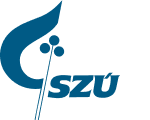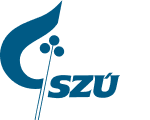Infokiri
| Dokumendiregister | Terviseamet |
| Viit | 8-2/25/841-1 |
| Registreeritud | 31.01.2025 |
| Sünkroonitud | 03.02.2025 |
| Liik | Sissetulev dokument |
| Funktsioon | 8 Nakkushaiguste seire, ennetuse ja tõrje korraldamine |
| Sari | 8-2 Nakkushaiguste epidemioloogiaalane riigiväline kirjavahetus |
| Toimik | 8.1-2/2025 |
| Juurdepääsupiirang | Avalik |
| Juurdepääsupiirang | |
| Adressaat | Riiklik rahvatervise instituut |
| Saabumis/saatmisviis | Riiklik rahvatervise instituut |
| Vastutaja | Kärt Sõber (TA, Peadirektori asetäitja (1) vastutusvaldkond, Nakkushaiguste epidemioloogia osakond) |
| Originaal | Ava uues aknas |
Failid
Open training opportunity 1:
Course Title: SARS-CoV-2 whole genome sequencing and basic bioinformatics
Format In-person course
Dates/duration 03 – 07 March 2025
Location Laboratoire National De Santé, Dudelange, Luxembourg
Description Five-day twinning visit on SARS-CoV-2 whole genome sequencing and bioinformatics
Objectives/intended learning outcomes
By the end of this course, the learner will be able to: Apply the WGS workflow from sample to sequence and methods for variant determination. Analyse and visualise for example variant proportions over time from own data and using online resources such as Nextstrain and others to assess global data. Operate the reporting of results to ECDC TESSy databases and to public databases such as GISAID or the COVID-19 data portal. Explain the purpose and limitations of the Illumina and Nanopore techniques. This twinning visit offers the trainee the possibility to discover two different techniques (Illumina and Nanopore) used in the Microbiology department of the trainer in the national genomic surveillance with the downstream data analysis and reporting. The training will be tailored to the trainer and the trainee’s needs.
Target audience
This course is designed for laboratory staff with prior knowledge and experience of standard laboratory techniques such as PCR, Sanger sequencing, and understanding of NGS technologies. The training is for one participant who should have sufficient knowledge on relevant laboratory methods to gain the greatest benefit from this training and be able to cascade the training at their institute. The training is considered advanced to expert level.
Eligibility Criteria
The applicants should be or will be involved in the microbiological surveillance of SARS-CoV-2 and be able to actively apply skills acquired as part of the training. The applicants should be part of the ECDC ERLI-Net and/or ECOVID-LabNet or a national public health institute or associated institute in countries of the EU/EEA, the Western Balkan (Albania, Kosovo, Montenegro, Serbia, North Macedonia, Bosnia and Herzegovina) or Türkiye.
Open training opportunity 2:
Course Title: Focused training on influenza surveillance laboratory methods and reporting
Format In-person course
Dates/duration 2 days. Dates can be agreed on with the training institute but should be before 15 March 2025.
Location Hellenic Pasteur Institute, Athens, Greece
Description Two-day twinning visit on focused training influenza surveillance laboratory methods and reporting
Objectives/intended learning outcomes
The exact training content will be agreed with the training participant. By the end of this course, the learner will be able to: Describe and apply laboratory methods used in the microbiological surveillance of influenza. Depending on training needs, content will cover one of the below areas with a focus on trainees’ needs:
1. Molecular assays - multiplex respiratory real-time PCR implementation - detection and typing - subtype/lineage determination for seasonal influenza and zoonotic (avian/swine) strains from human
specimens - validation of molecular assays
2. Genetic and Phenotypic Antiviral resistance - genetic antiviral resistance determination - phenotypic antiviral resistance testing
3. Neutralization and Antigenic characterization assays - virus microneutralization assay - antigenic characterisation
4. Bioinformatics Analysis - Basic bioinformatic analysis of influenza virus / use of bioinformatics tools - clade assignment for seasonal influenza and zoonotic (avian/swine) strains - genetic antiviral resistance determination - phylogenetic analyses - reporting of results to public databases such as GISAID
Operate the reporting of results to ECDC TESSy databases. This twinning visit aims to provide a focused training on certain aspects of Influenza surveillance laboratory methods and reporting. The training will be tailored to the trainee’s needs.
Target audience The training is for one participant who should have sufficient knowledge on relevant laboratory methods to gain the greatest benefit from this training and be able to cascade the training at their institute. The training is considered advanced to expert level.
Eligibility Criteria
The applicants should be or will be involved in the microbiological surveillance of Influenza and be able to actively apply skills acquired as part of the training. The applicants should be part of the ECDC ERLI-Net and/or ECOVID-LabNet or a national public health institute or associated institute in countries of the EU/EEA, the Western Balkan (Albania, Kosovo, Montenegro, Serbia, North Macedonia, Bosnia and Herzegovina) or Türkiye.
|
Tähelepanu! Tegemist on väljastpoolt asutust saabunud kirjaga. Tundmatu saatja korral palume linke ja faile mitte avada. |
Dear members of ECDC respiratory virus team,
As National Focal Points for Viral Respiratory Diseases - alternate, I nominate these candidates for laboratory training opportunities:
- One participant to the 5-day twinning visit on 03-07 March 2025 on “SARS-CoV-2 whole genome sequencing and basic bioinformatics” at the Laboratoire National de Santé, Luxembourg.
Nominated: Ing. Andrej Jasica, [email protected]
The expression of interest of the nominee:
I am writing to express my interest in the 5-day Twinning visit on “SARS-CoV-2 Whole Genome Sequencing and Basic Bioinformatics” taking place from March 3-7, 2025, at the Laboratoire National de Santé in Luxembourg. I have solid experience in PCR multiplex analysis for monitoring respiratory diseases and have directly sequenced SARS-CoV-2 positive samples using the Genexus system (Ion Torrent analyzer). I am eager to broaden my skills in more advanced bioinformatics.
Currently, my role mainly involves using the Genexus system’s built-in software to analyze sequences, which doesn’t heavily rely on bioinformatics tools. However, gaining a deeper knowledge of bioinformatics through formal training would greatly improve the efficiency and effectiveness of our lab’s work.
--
- One participant to the 2-day twinning visit on “Training on influenza surveillance laboratory methods and reporting” at the Hellenic Pasteur Institute, Athens, Greece. Date is based on agreement but must be before 15 March 2025.
Nominated: Timotej Suri, MsC., timotej.suri@szu.cz
The expression of interest of the nominee:
I have over three years of experience in bioinformatics and disease surveillance; I contribute to European public health projects, focusing on respiratory viruses like influenza, RSV, and SARS-CoV-2. Over the past year, except of bioinformatics I have focused more on disease surveillance and I would greatly appreciate the experience and knowledge from the training course. This training will enhance my expertise in reporting, strengthening my ability to support national and international surveillance efforts. I am personally convinced that my participation will help improve data quality, and thus it helps to improve the European surveillance network.
I think that improving the knowledge of both young colleagues will contribute to the professional competence of NRL for Influenza and respiratory viruses.
With regards,
Helena
-------- Původní zpráva --------
Předmět: Fwd: To NFPs for Action: PLEASE NOMINATE - 2 influenza and SARS-CoV-2 laboratory training opportunities available
Datum: Čtvrtek, Leden 23, 2025 16:28 CET
Od: Hana Orlíková <[email protected]>
Komu: Jan Kynčl <[email protected]>, Helena Jiřincová <[email protected]>
Ahoj Honzo a Heleno
v rozdělovníku je psán mj. adresát National Focal Points for Viral respiratory Diseases, ale nenašla jsem vás tam, tak pro jistotu přeposílám
Hana
-------- Původní zpráva --------
Předmět: To NFPs for Action: PLEASE NOMINATE - 2 influenza and SARS-CoV-2 laboratory training opportunities available
Datum: Čtvrtek, Leden 23, 2025 16:20 CET
Od: ECDC respiratory viruses <[email protected]>
Komu: Indra Alexander <[email protected]>, Apfalter Petra <[email protected]>, Wesley.Mattheus <[email protected]>, steven.vangucht <[email protected]>, ivanoov <[email protected]>, stefka.krumova <[email protected]>, ljiljana.zmak <[email protected]>, selma.bosnjak <[email protected]>, Ivana Ferenčak <[email protected]>, m.mendris <[email protected]>, Fani Theophanous <[email protected]>, dpieridou <[email protected]>, ckaragiannis <[email protected]>, Barbora Macková <[email protected]>, pavla.krizova <[email protected]>, Kristina Træholt Franck <[email protected]>, Eva Møller Nielsen <[email protected]>, Salmenlinna Saara <[email protected]>, Savolainen-Kopra Carita <[email protected]>, Mathieu TOURDJMAN <[email protected]>, CASTRO-ALVAREZ Javier <[email protected]>, mankertza <[email protected]>, WernerG <[email protected]>, Ιωάννα Σπηλιοπούλου <[email protected]>, "[email protected]" <[email protected]>, Judit Henczkó <[email protected]>, Hannes Bjarki Vigfússon <[email protected]>, Hjördís Harðardóttir <[email protected]>, Kirsten Schaffer <[email protected]>, ARHAI HPSC <[email protected]>, annateresa.palamara <[email protected]>, Stefanelli Paola <[email protected]>, gatis.pakarna <[email protected]>, Walser-Domjan Esther <[email protected]>, Visscher Carla <[email protected]>, svajune.muralyte <[email protected]>, Trung Nguyen <[email protected]>, claire.marantidis-cordina <[email protected]>, christopher.barbara <[email protected]>, Titia Kortbeek <[email protected]>, bettie.voordouw <[email protected]>, Trine Marie LAbée-Lund Normann <[email protected]>, artan.simaku <[email protected]>, Silvia Bino <[email protected]>, "[email protected]" <[email protected]>, "[email protected]" <[email protected]>, ari_kala <[email protected]>, "[email protected]" <[email protected]>, darinka.markovic <[email protected]>, zeljka.zekovic <[email protected]>, Dragan Kocinski <[email protected]>, golubinka <[email protected]>, dragana_dimitrijevic <[email protected]>, dragana_djordjevic <[email protected]>, "[email protected]" <[email protected]>, "[email protected]" <[email protected]>, "[email protected]" <[email protected]>, tugba.baltaci1 <[email protected]>, Christine Genevieve Monceyron Jonassen <[email protected]>, Karoline Bragstad <[email protected]>, Gierczyński Rafał <[email protected]>, a.skoczynska <[email protected]>, Helena Cortes Martins <[email protected]>, Jorge Machado <[email protected]>, Raluca Gatej <[email protected]>, teodora.vremera <[email protected]>, edita.staronova <[email protected]>, lucia.madarova <[email protected]>, Tjaša Žohar Čretnik <[email protected]>, Andrej Steyer <[email protected]>, katarina.prosenc <[email protected]>, ijado <[email protected]>, Horacio Gil Gil <[email protected]>, sara.byfors <[email protected]>, Andreas.Brave <[email protected]>, a_koraqi_70 <[email protected]>, shqyra <[email protected]>, amela.ljubovic <[email protected]>, pdimitrijevic <[email protected]>, arsimpz <[email protected]>, "[email protected]" <[email protected]>, "[email protected]" <[email protected]>, ljubica.teric <[email protected]>, golubinka <[email protected]>, dugagjin.osmani <[email protected]>, cirkoviciv <[email protected]>, "[email protected]" <[email protected]>, "[email protected]" <[email protected]>, "[email protected]" <[email protected]>
Kopie: Eeva Broberg <[email protected]>, Maximilian Riess <[email protected]>, ECDC respiratory viruses <[email protected]>, Agne Bajoriniene <[email protected]>, Country Cooperation <[email protected]>, ECDC Accession Support <[email protected]>, International Relations <[email protected]>, NC_CCB_Austria <[email protected]>, sigrid.kiermayr <[email protected]>, koen.blot <[email protected]>, "[email protected]" <[email protected]>, Zhivka Getsova <[email protected]>, Iva Christova <[email protected]>, kcapak <[email protected]>, bernard.kaic <[email protected]>, Elisavet Constantinou <[email protected]>, "[email protected]" <[email protected]>, Hana Orlíková <[email protected]>, Kamilla Grønborg Laut <[email protected]>, Stine Ulendorf Jacobsen <[email protected]>, Kärt Sõber <[email protected]>, Julia Geller <[email protected]>, "[email protected]" <[email protected]>, Otto Helve <[email protected]>, Savolainen-Kopra Carita <[email protected]>, Paula GARCIA-LOBATO <[email protected]>, Anne-Catherine VISO <[email protected]>, Lea Rathmachers <[email protected]>, "[email protected]" <[email protected]>, "Rexroth, Ute" <[email protected]>, Theodora Kalomama <[email protected]>, Dimitrios Paraskevis <[email protected]>, Christakis Chatzichristodoulou <[email protected]>, Agnes Danielisz <[email protected]>, "[email protected]" <[email protected]>, Judit Rezsőfi <[email protected]>, Guðrún Aspelund - Landl <[email protected]>, Lois O'Connor <[email protected]>, Aine Grace <[email protected]>, Patricia Garvey <[email protected]>, Louise Cullen <[email protected]>, Lisa Domegan <[email protected]>, Francesco Maraglino <[email protected]>, Antra Bormane <[email protected]>, "Dehler Silvia, Dr. med." <[email protected]>, Nerija Kuprevičienė <[email protected]>, Jurgita Pakalniškienė <[email protected]>, Jurgita Pakalniškienė <[email protected]>, Jean-Claude Schmit <[email protected]>, Gauci Charmaine at Health Regulation <[email protected]>, Hester de Melker <[email protected]>, Susan van den Hof <[email protected]>, "Macdonald, Emily Ann" <[email protected]>, Heidi Lange <[email protected]>, Zacharczuk Katarzyna <[email protected]>, Mariana Ferreira <[email protected]>, Pedro Licinio Pinto Leite <[email protected]>, "[email protected]" <[email protected]>, André Peralta Santos <[email protected]>, Adriana Pistol <[email protected]>, lucia.paulikova <[email protected]>, ecdc <[email protected]>, maja.socan <[email protected]>, "[email protected]" <[email protected]>, Sierra Moros. María José <[email protected]>, Simón Soria. Fernando <[email protected]>, "[email protected]" <[email protected]>, "[email protected]" <[email protected]>, Agneta Falk Filipsson <[email protected]>, Sara Bengtsson <[email protected]>, birgitta.lesko <[email protected]>, anette.richardson <[email protected]>, Silvia Bino <[email protected]>, Mirha Ošijan <[email protected]>, lul.raka <[email protected]>, "[email protected]" <[email protected]>, milko.joksimovic <[email protected]>, Marija Andonovska <[email protected]>, verica_jovanovic <[email protected]>, "Danijela Simic [BATUT ORG]" <[email protected]>, Begüm Buse Şahin <[email protected]>
To: National Focal Points for Viral respiratory Diseases, National Focal Points for Microbiology, Western Balkan and Türkiye Observer National Focal Points for Viral Respiratory Diseases,
National Focal Points for Microbiology Observer
Cc: National Coordinators, Western Balkan, and Türkiye National Correspondents
Dear Colleagues,
ECDC has two laboratory training opportunities available in March 2025 on SARS-CoV-2 and on influenza virus. Please nominate members of your laboratory that you believe are suited and can benefit from this training. Nominations should include Name, Email, and a few sentences on the motivation for participation.
ECDC covers all costs including travel, accommodation, and the training. The trainings are part of the extensive laboratory training programmes for respiratory viral diseases by ECDC and conducted by the AURORAE consortium.
The two available trainings are listed below and a detailed description of the content I attached:
- One participant to the 5-day twinning visit on 03-07 March 2025 on “SARS-CoV-2 whole genome sequencing and basic bioinformatics” at the Laboratoire National de Santé, Luxembourg.
- One participant to the 2-day twinning visit on “Training on influenza surveillance laboratory methods and reporting” at the Hellenic Pasteur Institute, Athens, Greece. Date is based on agreement but must be before 15 March 2025.
Please provide any expression of interest by 31 January 2025 as a reply to this email with the cc:ed.
Do let us know should you have any questions or queries!
We look forward to hearing from you.
Kind regards,
The ECDC respiratory virus team
|
Confidentiality Notice
If you are not the intended recipient of this message, you are hereby kindly requested, to, consecutively, refrain from disclosing its content to any third party, delete it and inform its sender of the erroneous transmittal.
Classified as ECDC NORMAL
--
Open training opportunity 1:
Course Title: SARS-CoV-2 whole genome sequencing and basic bioinformatics
Format In-person course
Dates/duration 03 – 07 March 2025
Location Laboratoire National De Santé, Dudelange, Luxembourg
Description Five-day twinning visit on SARS-CoV-2 whole genome sequencing and bioinformatics
Objectives/intended learning outcomes
By the end of this course, the learner will be able to: Apply the WGS workflow from sample to sequence and methods for variant determination. Analyse and visualise for example variant proportions over time from own data and using online resources such as Nextstrain and others to assess global data. Operate the reporting of results to ECDC TESSy databases and to public databases such as GISAID or the COVID-19 data portal. Explain the purpose and limitations of the Illumina and Nanopore techniques. This twinning visit offers the trainee the possibility to discover two different techniques (Illumina and Nanopore) used in the Microbiology department of the trainer in the national genomic surveillance with the downstream data analysis and reporting. The training will be tailored to the trainer and the trainee’s needs.
Target audience
This course is designed for laboratory staff with prior knowledge and experience of standard laboratory techniques such as PCR, Sanger sequencing, and understanding of NGS technologies. The training is for one participant who should have sufficient knowledge on relevant laboratory methods to gain the greatest benefit from this training and be able to cascade the training at their institute. The training is considered advanced to expert level.
Eligibility Criteria
The applicants should be or will be involved in the microbiological surveillance of SARS-CoV-2 and be able to actively apply skills acquired as part of the training. The applicants should be part of the ECDC ERLI-Net and/or ECOVID-LabNet or a national public health institute or associated institute in countries of the EU/EEA, the Western Balkan (Albania, Kosovo, Montenegro, Serbia, North Macedonia, Bosnia and Herzegovina) or Türkiye.
Open training opportunity 2:
Course Title: Focused training on influenza surveillance laboratory methods and reporting
Format In-person course
Dates/duration 2 days. Dates can be agreed on with the training institute but should be before 15 March 2025.
Location Hellenic Pasteur Institute, Athens, Greece
Description Two-day twinning visit on focused training influenza surveillance laboratory methods and reporting
Objectives/intended learning outcomes
The exact training content will be agreed with the training participant. By the end of this course, the learner will be able to: Describe and apply laboratory methods used in the microbiological surveillance of influenza. Depending on training needs, content will cover one of the below areas with a focus on trainees’ needs:
1. Molecular assays - multiplex respiratory real-time PCR implementation - detection and typing - subtype/lineage determination for seasonal influenza and zoonotic (avian/swine) strains from human
specimens - validation of molecular assays
2. Genetic and Phenotypic Antiviral resistance - genetic antiviral resistance determination - phenotypic antiviral resistance testing
3. Neutralization and Antigenic characterization assays - virus microneutralization assay - antigenic characterisation
4. Bioinformatics Analysis - Basic bioinformatic analysis of influenza virus / use of bioinformatics tools - clade assignment for seasonal influenza and zoonotic (avian/swine) strains - genetic antiviral resistance determination - phylogenetic analyses - reporting of results to public databases such as GISAID
Operate the reporting of results to ECDC TESSy databases. This twinning visit aims to provide a focused training on certain aspects of Influenza surveillance laboratory methods and reporting. The training will be tailored to the trainee’s needs.
Target audience The training is for one participant who should have sufficient knowledge on relevant laboratory methods to gain the greatest benefit from this training and be able to cascade the training at their institute. The training is considered advanced to expert level.
Eligibility Criteria
The applicants should be or will be involved in the microbiological surveillance of Influenza and be able to actively apply skills acquired as part of the training. The applicants should be part of the ECDC ERLI-Net and/or ECOVID-LabNet or a national public health institute or associated institute in countries of the EU/EEA, the Western Balkan (Albania, Kosovo, Montenegro, Serbia, North Macedonia, Bosnia and Herzegovina) or Türkiye.













